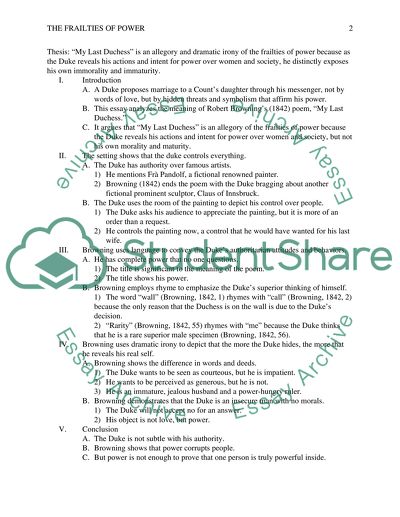Cite this document
(“The Frailties of Power in Brownings My Last Duchess Essay”, n.d.)
Retrieved from https://studentshare.org/english/1467646-the-frailties-of-power-in-brownings-my-last-duchess
Retrieved from https://studentshare.org/english/1467646-the-frailties-of-power-in-brownings-my-last-duchess
(The Frailties of Power in Brownings My Last Duchess Essay)
https://studentshare.org/english/1467646-the-frailties-of-power-in-brownings-my-last-duchess.
https://studentshare.org/english/1467646-the-frailties-of-power-in-brownings-my-last-duchess.
“The Frailties of Power in Brownings My Last Duchess Essay”, n.d. https://studentshare.org/english/1467646-the-frailties-of-power-in-brownings-my-last-duchess.


